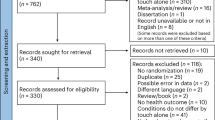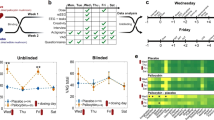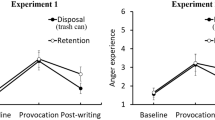Abstract
Procrastination takes a considerable toll on people’s lives, the economy and society at large. Procrastination is often a consequence of people’s propensity to prioritize their immediate experiences over the long-term consequences of their actions. This suggests that aligning immediate rewards with long-term values could be a promising way to help people make more future-minded decisions and overcome procrastination. Here we develop an approach to decision support that leverages artificial intelligence and game elements to restructure challenging sequential decision problems in such a way that it becomes easier for people to take the right course of action. A series of four increasingly realistic experiments suggests that this approach can enable people to make better decisions faster, procrastinate less, complete their work on time and waste less time on unimportant tasks. These findings suggest that our method is a promising step towards developing cognitive prostheses that help people achieve their goals.
This is a preview of subscription content, access via your institution
Access options
Access Nature and 54 other Nature Portfolio journals
Get Nature+, our best-value online-access subscription
$29.99 / 30 days
cancel any time
Subscribe to this journal
Receive 12 digital issues and online access to articles
$119.00 per year
only $9.92 per issue
Buy this article
- Purchase on Springer Link
- Instant access to full article PDF
Prices may be subject to local taxes which are calculated during checkout






Similar content being viewed by others
Data availability
The data that support the findings of this study are available at https://osf.io/h7vqy/.
Code availability
The code used to conduct Experiment 1, Experiment 2 and its follow-up experiments is available at https://osf.io/h7vqy/. The code used to conduct Experiment 3 and Experiment 4 is available on GitHub at https://github.com/BrowenChen/Cognitive-Tools-for-Self-Mastery. The code used to analyse the data is available at https://osf.io/h7vqy/ and in the Supplementary Software file.
References
Ariely, D. Predictably iIrrational. (Harper Collins, 2008).
Tversky, A. & Kahneman, D. Judgment under uncertainty: heuristics and biases. Science 185, 1124–1131 (1974).
Gilovich, T., Griffin, D. & Kahneman, D. Heuristics and Biases: The Psychology of Intuitive Judgment (Cambridge Univ. Press, 2002).
Todd, P. M. & Gigerenzer, G. Environments that make us smart: ecological rationality. Curr. Dir. Psychol. Sci. 16, 167–171 (2007).
Oaksford, M. & Chater, N. A rational analysis of the selection task as optimal data selection. Psychol. Rev. 101, 608–631 (1994).
Chater, N. & Oaksford, M. Ten years of the rational analysis of cognition. Trends Cogn. Sci. 3, 57–65 (1999).
Todd, P. M. & Gigerenzer, G. Ecological Rationality: Intelligence in the World. (Oxford Univ. Press, New York, 2012).
Griffiths, T. L., Lieder, F. & Goodman, N. D. Rational use of cognitive resources: levels of analysis between the computational and the algorithmic. Top. Cogn. Sci. 7, 217–229 (2015).
Gigerenzer, G. & Hoffrage, U. How to improve Bayesian reasoning without instruction: frequency formats. Psychol. Rev. 102, 684–704 (1995).
Hoffrage, U., Lindsey, S., Hertwig, R. & Gigerenzer, G. Communicating statistical information. Science 290, 2261–2262 (2000).
Gigerenzer, G. & Edwards, A. Simple tools for understanding risks: from innumeracy to insight. BMJ 327, 741 (2003).
Thaler, R. H. & Sunstein, C. R. Nudge: Improving Decisions about Health, Wealth, and Happiness. (Yale Univ. Press, New Haven, 2008).
Johnson, E. J. et al. Beyond nudges: tools of a choice architecture. Mark. Lett. 23, 487–504 (2012).
Aronson, J. E., Liang, T.-P. & Turban, E. Decision Support Systems and Intelligent Systems (Pearson Prentice-Hall, 2005).
Power, D. J., Sharda, R. & Burstein, F. in Wiley Encyclopedia of Management Vol. 7 (eds Straub, D. & Welke, R.) 1–11 (Wiley, 2015).
Aviv, Y. & Pazgal, A. A partially observed Markov decision procBhatnagar, S., Fernández-Gaucherand, E., Fu, M. C., He, Y. & Marcus, S. I. A Markov decision process model for capacity expansion and allocation. InIEEE Conference on Decision and Control Vol. 2 (ed Altman, E.) 1380–1385 (IEEE, 1999).ess for dynamic pricing. Manag. Sci. 51, 1400–1416 (2005).
Song, H., Liu, C.-C., Lawarrée, J. & Dahlgren, R. W. Optimal electricity supply bidding by Markov decision process. IEEE Trans. Power Syst. 15, 618–624 (2000).
Gadomski, A. M., Bologna, S., Costanzo, G. D., Perini, A. & Schaerf, M. Towards intelligent decision support systems for emergency managers: the IDA approach. Int. J. Risk Assess. Manag. 2, 224–242 (2001).
Bhatnagar, S., Fernández-Gaucherand, E., Fu, M. C., He, Y. & Marcus, S. I. A Markov decision process model for capacity expansion and allocation. In IEEE Conference on Decision and Control Vol. 2 (ed Altman, E.) 1380–1385 (IEEE, 1999).
Nunes, L. G. N., de Carvalho, S. V. & de Cássia Meneses Rodrigues, R. Markov decision process applied to the control of hospital elective admissions. Artif. Intell. Med. 47, 159–171 (2009).
Ainslie, G. & Haslam, N. in Choice over Time (eds Loewenstein, G. & Elster, J.) 57–92 (Russell Sage Foundation, 1992).
Myerson, J. & Green, L. Discounting of delayed rewards: models of individual choice. J. Exp. Anal. Behav. 64, 263–276 (1995).
Huys, Q. J. M. et al. Bonsai trees in your head: how the Pavlovian system sculpts goal-directed choices by pruning decision trees. PLoS Comput. Biol. 8, e1002410 (2012).
Steel, P. The nature of procrastination: a meta-analytic and theoretical review of quintessential self-regulatory failure. Psychol. Bull. 133, 65–94 (2007).
Mischel, W., Shoda, Y. & Rodriguez, M. L. Delay of gratification in children. Science 244, 933–938 (1989).
Deterding, S., Dixon, D., Khaled, R. & Nacke, L. From game design elements to gamefulness: defining gamification. In Proc. of the 15th International Academic MindTrek Conference: Envisioning Future Media Environments (eds Lugmayr, A., Franssila, H., Safran, C. & Hammouda, I.) 9–15 (ACM, 2011).
Hamari, J., Koivisto, J. & Sarsa, H. Does gamification work? A literature review of empirical studies on gamification. In Proc. of the 47th Hawaii International Conference on System Sciences (ed Sprague, R. H., Jr.) 3025–3034 (IEEE, 2014).
Callan, R. C., Bauer, K. N. & Landers, R. N. in Gamification in Education and Business (eds Reiners, T. & Wood, L. C.) 553–568 (Springer, 2015).
Devers, C. J. & Gurung, R. A. in Gamification in Education and Business (eds Reiners, T. & Wood, L. C.) 417–430 (Springer, 2015).
Sutton, R. S. & Barto, A. G. Reinforcement Learning: An Introduction. (MIT Press, 1998).
Callaway, F. et al. A resource-rational analysis of human planning. In Proc. of the 40th Annual Conference of the Cognitive Science Society (eds Kalish, C. et al.) 178–183 (Cognitive Science Society, 2018).
Baumeister, R. F., Heatherton, T. F. & Tice, D. M. Losing Control: How and Why People Fail at Self-Regulation (Academic, 1994).
Ng, A. Y., Harada, D. & Russell, S. Policy invariance under reward transformations: theory and application to reward shaping. In Proc. of the 16th Annual International Conference on Machine Learning (eds Bratko, I. & Dzeroski, S.) 278–287 (Morgan Kaufmann, 1999).
Rieley, J. B. Are your employees gaming the system? Natl Product. Rev. 19, 1–6 (2000).
Bevan, G. & Hood, C. What’s measured is what matters: targets and gaming in the english public health care system. Public Adm. 84, 517–538 (2006).
Thom, J., Millen, D. & DiMicco, J. Removing gamification from an enterprise SNS. In Proc. of the ACM 2012 Conference on Computer Supported Cooperative Work (eds Poltrock, S., Simone, C., Grudin, J., Mark, G. & Riedl, J.) 1067–1070 (ACM, 2012).
Lieder, F., Callaway, F., Krueger, P., Griffiths, T. & Gul, S. Discovering and teaching optimal planning strategies. In KOGWIS2018: Computational Approaches to Cognitive Science (eds Rothkopf, C. et al.) 38 (GK, 2018).
Simon, H. A. Rational choice and the structure of the environment. Psychol. Rev. 63, 129 (1956).
Gagné, M. & Deci, E. L. Self-determination theory and work motivation. J. Organ. Behav. 26, 331–362 (2005).
Steel, P. & König, C. J. Integrating theories of motivation. Acad. Manag. Rev. 31, 889–913 (2006).
Puterman, M. L. Markov Decision Processes: Discrete Stochastic Dynamic Programming (John Wiley & Sons, 2014).
Krueger, P. M., Lieder, F. & Griffiths, T. L. Enhancing metacognitive reinforcement learning using reward structures and feedback. In Proc. of the 39th Annual Conference of the Cognitive Science Society (eds Gunzelmann, G. et al.) 2469–2474 (Cognitive Science Society, 2017).
Hertwig, R. & Grüne-Yanoff, T. Nudging and boosting: steering or empowering good decisions. Perspect. Psychol. Sci. 12, 973–986 (2017).
Hertwig, R. When to consider boosting: some rules for policy-makers. Behav. Public Policy 1, 143–161 (2017).
Keramati, M., Smittenaar, P., Dolan, R. J. & Dayan, P. Adaptive integration of habits into depth-limited planning defines a habitual-goal–directed spectrum. Proc. Natl Acad. Sci. USA 113, 12868–12873 (2016).
Michaelsen, P., Johansson, L.-O. & Hedesström, M. Experiencing nudges: autonomy, intrusion and choice satisfaction as judged by people themselves. In Society for Judgment and Decision Making: The 2017 38th Annual Conference (eds Shu, S. et al.) 30 (SJDM, 2017).
Dillard, J. P. & Shen, L. On the nature of reactance and its role in persuasive health communication. Commun. Monogr. 72, 144–168 (2005).
Acknowledgements
Preliminary versions of Experiments 1 and 2 were presented at the 38th Annual Meeting of the Cognitive Science Society. This material has been substantially revised and expanded for the present Article. We would like to thank J. R. Nill and E. Q. Zhang for their contributions to developing the to-do list gamification app, P. Michaelsen for sharing his self-report measures of autonomy and intrusion, T. Ntounis for technical support, and E. Kon, R. Antonova, P. Krueger, M. Pacer, D. Reichman, S. Russell and J. Suchow for feedback and discussion. This work was supported by grant number 1757269 from the National Science Foundation, grant number ONR MURI N00014-13-1-0341, and a grant from the Templeton World Charity Foundation to T.L.G. The funders had no role in study design, data collection and analysis, decision to publish or preparation of the manuscript.
Author information
Authors and Affiliations
Contributions
F.L. and T.L.G. designed the research. F.L., P.M.K. and O.C. performed the research. F.L. and P.M.K. analysed the data. F.L. and T.L.G. wrote the paper.
Corresponding author
Ethics declarations
Competing interests
The authors declare no competing interests.
Additional information
Peer review information: Primary Handling Editor: Stavroula Kousta.
Publisher’s note: Springer Nature remains neutral with regard to jurisdictional claims in published maps and institutional affiliations.
Supplementary information
Supplementary Information
Supplementary Figs. 1–21, Supplementary Tables 1–5, Supplementary Methods and Supplementary References.
Supplementary Software
Analysis code.
Rights and permissions
About this article
Cite this article
Lieder, F., Chen, O.X., Krueger, P.M. et al. Cognitive prostheses for goal achievement. Nat Hum Behav 3, 1096–1106 (2019). https://doi.org/10.1038/s41562-019-0672-9
Received:
Accepted:
Published:
Issue Date:
DOI: https://doi.org/10.1038/s41562-019-0672-9
This article is cited by
-
Optimal feedback improves behavioral focus during self-regulated computer-based work
Scientific Reports (2024)



